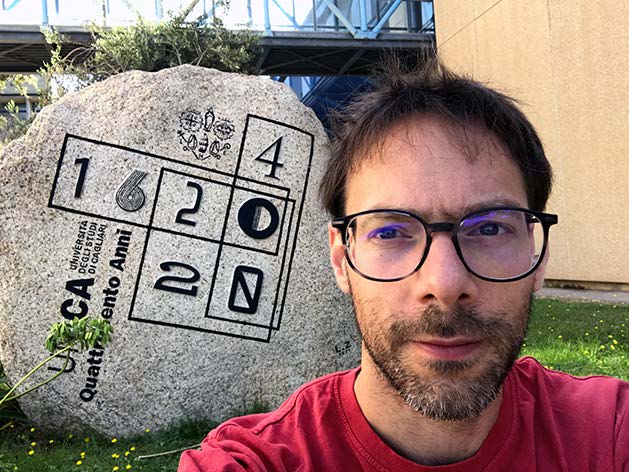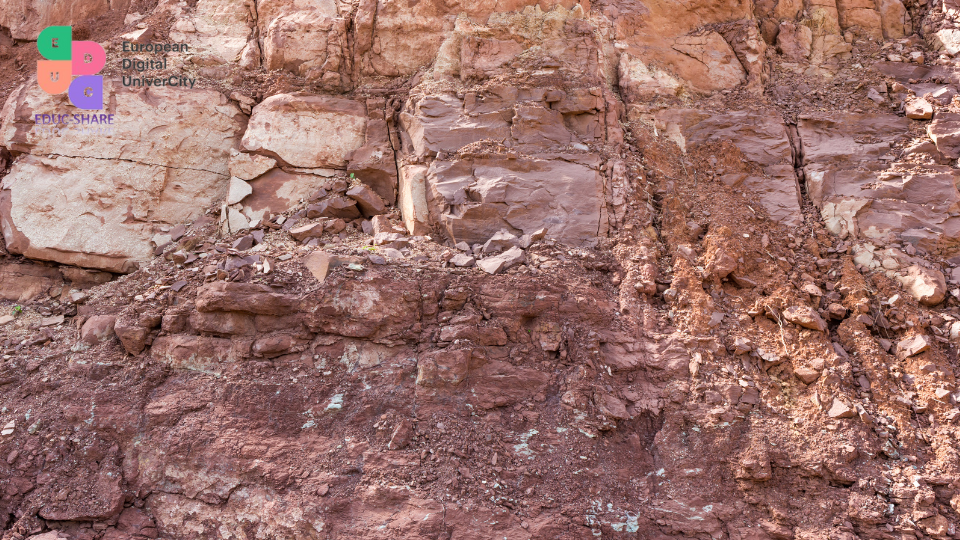
Feedback from Camille Rossignol, Earth Science researcher at the University of Cagliari in Italy, on exchange at the University of Rennes as part of the EDUC-SHARE* project
Dear Camille, you are a researcher in Earth Sciences at the University of Cagliari in Italy. You were a winner of the EDUC-SHARE call for projects giving you access to the research infrastructures of its six partners. You spent your exchange at the University of Rennes in France. Can you share your experience with us?
I would love to! First of all, I would like to tell you about my research.
My work focuses on understanding the major paleo-environmental changes that took place between 350 and 250 million years ago. During this period, the Earth cooled and then warmed significantly. This period in its history can be used as a laboratory to better understand the environmental changes we are experiencing today.
I use two methods to reconstruct paleoenvironmental changes: sedimentology and dating. I responded to the call for projects to be able to carry out the dating methodology. To do this, we use the radioactive decay of uranium naturally contained in certain minerals. The analytical instruments needed to do this are only available in a limited number of universities. Fortunately, this equipment is available at the University of Rennes through the GeOHeLiS platform.
The EDUC-SHARE call for projects made my analysis much easier: it gave me very easy access to the GeOHeLiS platform and covered the cost of the analysis.

How was your stay in Rennes?
I was very well received in Rennes, both from a human and logistical point of view. At the time, I had also responded to a call for tenders to become a visiting professor at the Rennes Observatory of Universe Sciences (Observatoire des Sciences de l'Univers de Rennes - OSUR), which I won. I was able to do both mobilities at the same time and stayed in Rennes for three months, from May to July 2023. I was able to use the platform's instruments to carry out preliminary imaging analyses, and then do 60 hours of isotope analyses to date the selected minerals, which was what I needed.
I received a very warm welcome at the GeoHeLIS platform. The platform is modern and has all the equipment needed to implement the method, with state-of-the-art instruments. A research engineer and a platform manager are on hand to help us and speak perfect English.
On the logistical side, I was housed at the ‘Cité Internationale Paul Ricoeur’, which is dedicated to doctoral students and international researchers. Located in the city centre, 5 minutes’ walk from the train station, metro, buses and amenities, this emblematic building is truly ideal for its location and the facilities it offers. All of Rennes' university campuses are easily accessible from the Cité Internationale by public transport. Each studio has a kitchenette/lounge area where you can cook for yourself, making it suitable for both short and longer stays.
My stay was also made easier by the fact that I studied biology and geology and did my thesis at the University of Rennes, so I was already familiar with the place. However, being able to return to the laboratory as part of my research enabled me to strengthen existing collaborations and create new ones.

How has this mobility benefited your research and your career?
The results of my analyses and the conclusions I drew from them had scientific repercussions: we were able to re-evaluate the age of several fossil organisms, opening up new perspectives on their temporal and geographical distribution. It also raised new questions about the distribution of these organisms, which lived around 300 million years ago.
Following the results obtained thanks to the EDUC-SHARE grant, our collaborations have been strengthened with the arrival of a researcher from the University of Rennes at the University of Cagliari as a visiting professor in April 2024.
In addition to the EDUC network, my work has led to the development of international collaborations with paleontologists from the Muséum national d'histoire naturelle in Paris and a Chinese university.
We hope to publish our work soon.
Would you encourage your colleagues to benefit from this experience?
Yes, absolutely. The opportunity to access the research infrastructures of European partners is invaluable from both a technical and human point of view. I can only encourage them!
* This call for research projects requesting access to EDUC research infrastructures is part of the EDUC-SHARE project, funded by the Horizon Europe programme to develop the research-innovation-science and society pillar in European universities